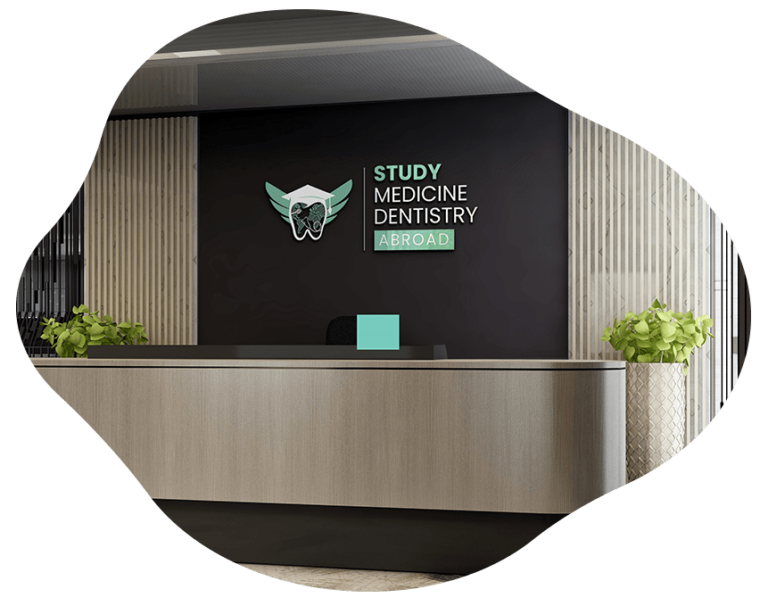Introduction
The field of medicine and dentistry offers a rewarding career path, marked by the potential to make significant impacts on individuals and communities. For aspiring healthcare professionals, studying medicine and dentistry abroad can present unique advantages, including diverse educational opportunities, international exposure, and personal growth. This article will explore the benefits, considerations, and practical steps involved in pursuing medical or dental education overseas.
Why Study Medicine and Dentistry Abroad?
1. Access to High-Quality Education
Many countries are home to prestigious Study Medicine and Dentistry in Abroad schools known for their rigorous academic standards and cutting-edge research. Studying abroad can provide access to programs that may not be available in your home country. Institutions in countries like the UK, Germany, and Australia often offer world-class education, preparing students to excel in their careers.
2. Cultural Diversity
Studying in a different country exposes students to diverse cultures and healthcare practices. This international perspective is invaluable in the medical field, where understanding cultural nuances can enhance patient care. By interacting with classmates from various backgrounds, students learn to appreciate different viewpoints and approaches to health and well-being.
3. Improved Language Skills
Studying medicine and dentistry abroad often involves learning a new language or improving proficiency in a foreign language. This skill can be crucial in providing effective care to diverse patient populations. Being multilingual not only enhances communication but also opens doors to job opportunities in various countries.
4. Networking Opportunities
Studying abroad allows students to build a global network of professional contacts, including classmates, professors, and industry leaders. These connections can lead to internship opportunities, collaborative projects, and job placements after graduation. Networking is essential in the healthcare sector, where referrals and relationships can significantly impact career advancement.
Key Considerations When Studying Abroad
1. Research Programs Thoroughly
Before deciding to study abroad, it’s important to research various programs and universities. Look for information on curriculum, faculty qualifications, and accreditation. Each institution has its unique strengths, so choose one that aligns with your career goals and interests.
2. Understand Admission Requirements
Different countries and universities have specific admission requirements. Be sure to review these carefully, as they may include standardized tests, language proficiency exams, and prerequisite courses. Meeting these criteria is essential for a successful application.
3. Financial Planning
Studying abroad can be costly. It’s essential to budget for tuition, living expenses, travel, and other costs. Look into scholarship opportunities, grants, and financial aid options available for international students. Proper financial planning can help ease the burden of studying abroad.
4. Visa and Immigration Regulations
Familiarize yourself with the visa and immigration regulations of your chosen country. Ensure you have the necessary documentation, such as acceptance letters and proof of financial support, to obtain a student visa. Compliance with these regulations is crucial for a smooth educational experience.
Popular Destinations for Studying Medicine and Dentistry
1. United Kingdom
The UK boasts some of the world’s top medical and dental schools, including Oxford, Cambridge, and Imperial College London. The country’s comprehensive healthcare system provides students with valuable insights into patient care and medical practice.
2. Germany
Germany is known for its excellent medical education, with many programs available in English. The country also offers low or no tuition fees for international students, making it an attractive option for those seeking quality education without significant financial strain.
3. Australia
Australian universities, such as the University of Melbourne and the University of Sydney, are renowned for their strong emphasis on research and practical training. The vibrant culture and lifestyle also make Australia a popular choice for international students.
4. Canada
Canada is recognized for its inclusive and diverse educational environment. Top institutions like the University of Toronto and McGill University offer comprehensive programs in medicine and dentistry, focusing on hands-on learning and community engagement.
5. Eastern Europe
Countries such as Poland, Hungary, and the Czech Republic have become popular destinations for international students seeking affordable medical and dental education. Many programs are offered in English, and the quality of education is highly regarded.
Making the Most of Your Experience Abroad
1. Engage with the Community
Participating in community service or local events can enrich your experience while studying abroad. Engaging with the local culture and community will not only enhance your understanding of the healthcare landscape but also help you build lasting relationships.
2. Focus on Professional Development
Take advantage of workshops, seminars, and conferences to further your education and network with professionals in your field. Engaging in extracurricular activities and internships can also provide practical experience and improve your resume.
3. Stay Organized
Studying abroad can be overwhelming, so staying organized is key. Keep track of important deadlines, assignments, and documentation to ensure a smooth academic experience. Being proactive will help you manage your time effectively.
4. Seek Support When Needed
Don’t hesitate to reach out for support, whether from fellow students, academic advisors, or mental health services. Adapting to a new environment can be challenging, and accessing resources can help ease the transition.
Conclusion
Studying medicine and dentistry abroad is an exciting opportunity that can significantly enhance your education and career prospects. The benefits of diverse learning environments, cultural experiences, and networking opportunities are invaluable in today’s globalized world. For more information, visit educational resources and institutions that can provide guidance and support as you embark on this transformative journey For more information visit .
















